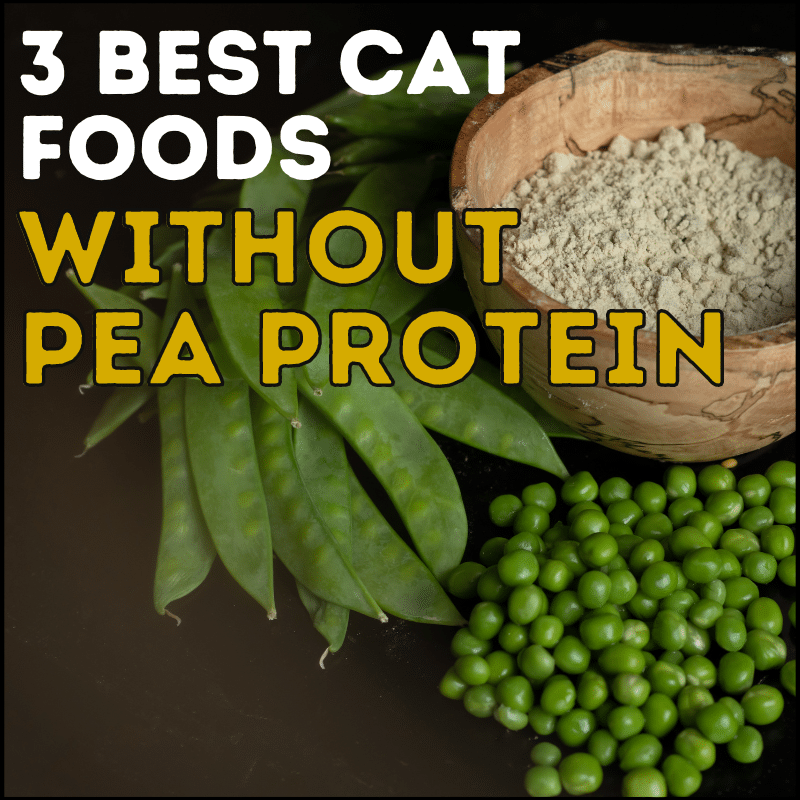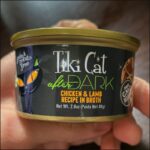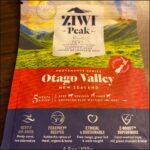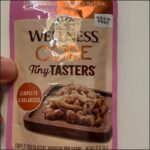Disclaimer: As a Chewy and Amazon affiliate, I earn from qualifying purchases. This does not impact our comparisons.
Pea protein in sneaky ingredient loaded into many cat foods. It helps cats meet protein needs, but can cause digestive upset.
Wet cat food is the best choice to avoid peas, but check the ingredients.
In this article, I’ll go through buying guide to avoid pea protein. You’ll find out how to choose the best cat food for easy digestion.
Then I’ll go through my top recommendations and answer frequently asked questions.
4 Best Cat Foods Without Pea Protein: A Quick Look
Buying Guide
Finding a cat food without pea protein is easy enough.
Check the back of the label for pea protein.
Also look for other plant protein sources. This includes:
- Wheat gluten meal
- Corn gluten meal
- Soy protein
- Lentils
- Pinto beans
- Black beans
The higher the ingredient, the more of it.
Consider total protein, and quality of sources. Animal based foods sources are best.
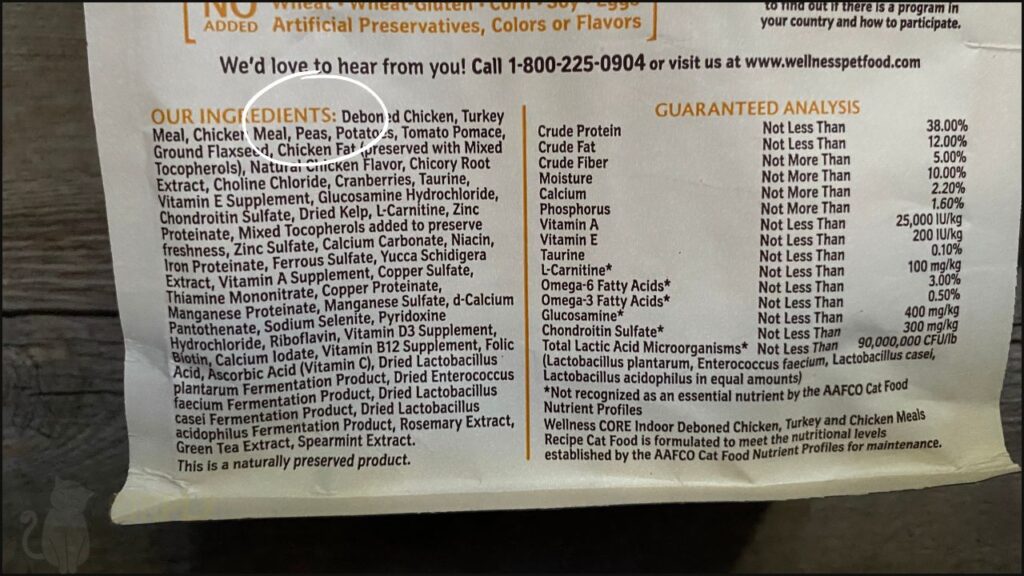
How Much Protein Should I Look For?
Aim for 30% protein on a dry matter basis.
AAFCO recommend this for growth and reproduction.
The main source of protein should be animal based. It’s higher quality.
Animal protein is easy to digest and contains more essential amino acids.
Use a dry matter basis calculator to check protein.
Should I Get a Dry Cat Food or Wet Food?
Wet is best to avoid pea protein.
Most dry cat food tends to load up on peas, in our experience. This includes popular choices like:
- Taste of the Wild
- Orijen
- Crave
- Tiki Cat Born Carnivore
You’ll have an easier time finding something in the wet cat food range.
Wet cat food may also be best for health, as it helps keep cats hydrated. Great for kidney function.
4 Best Cat Foods Without Pea Protein
For this article I filtered out the following ingredients:
- Peas
- Pea
- Pea protein
- Lentils
- Soy
- Soy protein
- Soy flour
- Kidney beans
In the spirit of this article, I also looked for foods low in other less desirable ingredients like grains.
I then sorted popular cat foods on nutrition, ingredients, and taste (from my testing and customer ratings). See our testing methodology for how we score cat food.
Tiki Cat After Dark comes out on top as the best overall choice without peas.
It’s a great all-around cat food with everything cats need in the tin, with a fresh shredded texture.
Overall Best: Tiki Cat After Dark
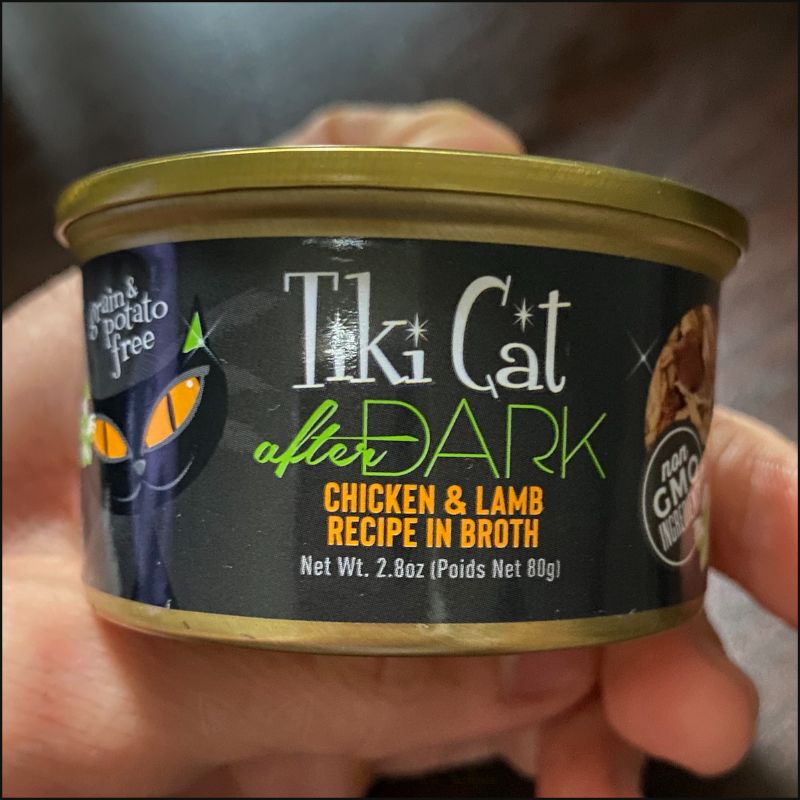






Tiki Cat After Dark stands out for quality, freshness, and protein content.
It’s pea-free, but also grain, potato, corn, gum, carrageenan and soy free. Nice.
The only thing it does have is chicken with other meats depending on the flavor.
In my experience, my male cat Maxie munched a full tin with no problems. My other kitten took some time, as she’s a kibble-lover.
The price is high, but arguably worth it with the stand out quality.
Pea protein free
Complete for all ages
Soy free
Grain free
Very pricey
Could use more flavors
78% protein
0% carbs
16% fat
751 kcal/kg
12 x 3 oz. packs available
$0.62 cost per oz.
Made in Thailand
Shredded texture
Best Dry Food: Ziwi Peak
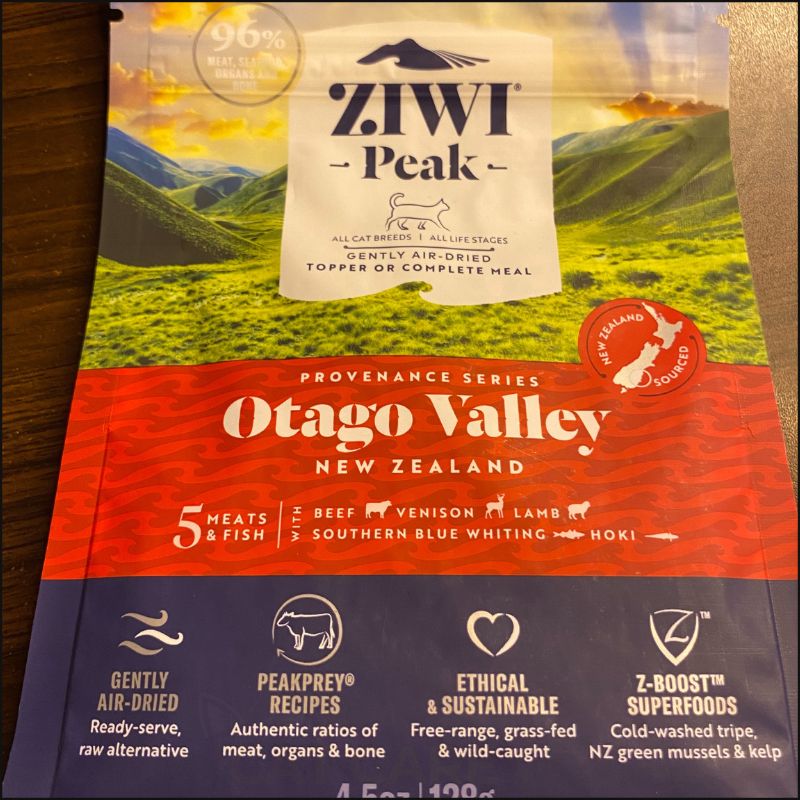






Ziwi Peak is your best dry cat food and it’s not even close.
Unlike most dry food, you won’t find any pea protein, lentils, grains, soy or anything of the sort.
It’s all air-dried meat in the bag, which is exactly what cats need.
There is a tiny amount of apple pomace, but I haven’t seen anything problematic about that.
Still, that’s a far cry from the millions of ingredients loaded into other dry cat food, longer than the royal wedding red carpet.
The taste is also favorable in my experience with four kittens, although it took a little bit more time than others to get them warmed up.
Another pricey one, but it is what it is.
Pea protein free
Complete for all ages
Soy free
Grain free
Very pricey
Could use more flavors
41% protein
<5% carbs
38% fat
5,600 kcal/kg
2 lb. packs available
$1.60 cost per oz.
Made in New Zealand
Air-dried cat food
Best for Kittens: Wellness Core Tiny Tasters Kitten
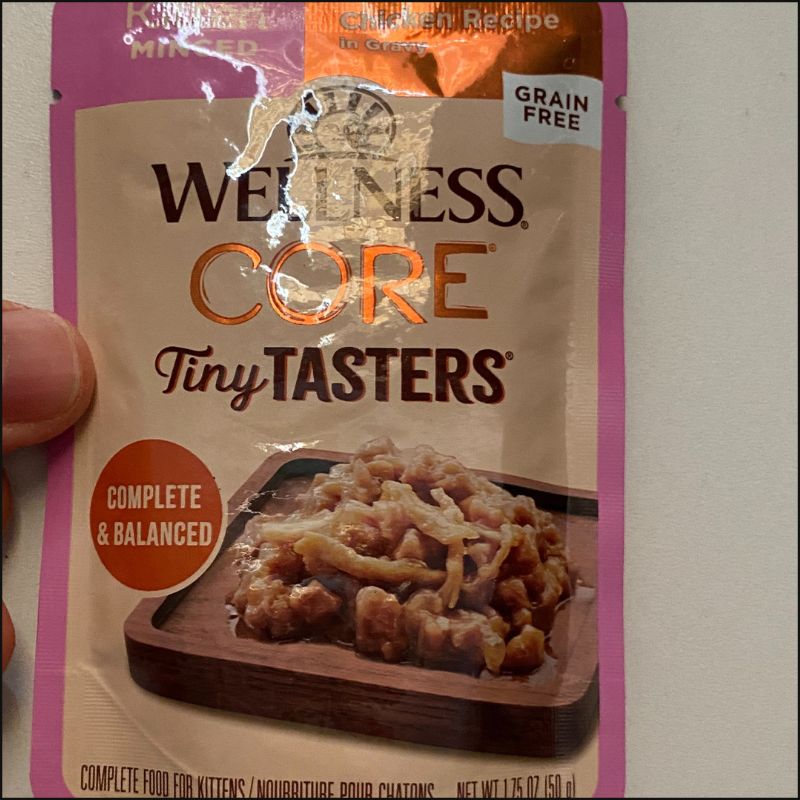






Wellness Core Tiny Tasters comes out on top for kitten food.
It’s free of pea protein, soy, lentils and grains.
Chicken, tuna, duck, chicken broth and water round out the top 5 ingredients which is quality stuff.
They offer shreds and pate options. Picky eaters will enjoy it.
The real issue is there’s only one flavor – chicken. Could use a tuna one as well.
Price is also a little on the exorbitant side.
Pea protein free
Complete for growth of kittens
Soy free
Grain free
Very pricey
Only offer chicken flavor
60% protein
2% carbs
28% fat
1,040 kcal/kg
12 x 1.75 oz. packs available
$0.58 cost per oz.
Made in Thailand
Pate or mince texture
Affordable Pick: Fancy Feast Classic
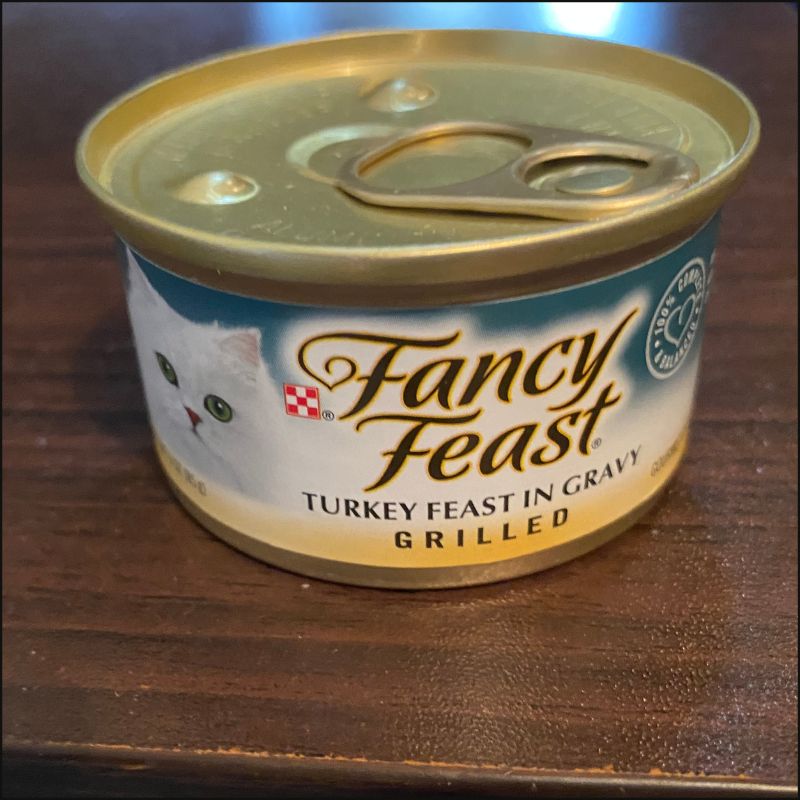






Fancy Feast is a reliable budget pick.
There’s a lot of variety in a range of textures with the classic range.
Thankfully, Fancy Feast classic is pea protein free, corn free, gluten free and meat rich.
My results with Fancy Feast are good compared to some questionable looking cheaper cat food.
The smell is a bit average though I’ve found.
Pea protein free
Complete for all adults
Variety of textures
Grain free
Can smell a bit
Uses meat by-products
48% protein
5% carbs
27% fat
1,184 kcal/kg
24 x 3 oz. packs available
$0.28 cost per oz.
Made in USA
Mince, pate and gravy
Frequently Asked Questions
Is There a Difference Between Animal and Plant Protein?
Yes.
Animal protein is a higher quality source of protein than plant protein. This is due to having a higher amount of essential amino acids.
Protein quality refers to two things:
- How well the protein is absorbed?
- How well does the protein relate to the needs of the animal?
Researchers use the Protein Digestibility Corrected Amino Acid Score (PDCAAS) to compare protein quality.
A score of 100% means all protein needs are met through absorption and digestion. The lower the score, the lower the quality.
Here are a few protein sources compared:
| Protein Source | PDCAAS |
| Casein (dairy protein) | 100% |
| Whey (dairy protein) | 100% |
| Egg | 100% |
| Soy flour | 93% |
| Red Meat | 92% |
| Pea protein (concentrate) | 89% |
| Black bean | 75% |
| Chickpea | 74% |
| Yellow split pea | 64% |
| Green lentil | 63% |
| Wheat gluten | 25% |
Plant protein sources are less bioavailable for a few reasons.
The protein structure of plant protein resists digestion from enzymes.
Other inhibiting factors include phytic acid.
On the bright side, blending pea protein with animal protein improves absorption.
Note that pea protein is better absorbed than chickpea (74%) and wheat gluten (25%).
Cat’s need 10 essential amino acids for health. This includes taurine which is not essential in humans.
Taurine is high in animal foods, but low in plant based protein sources.
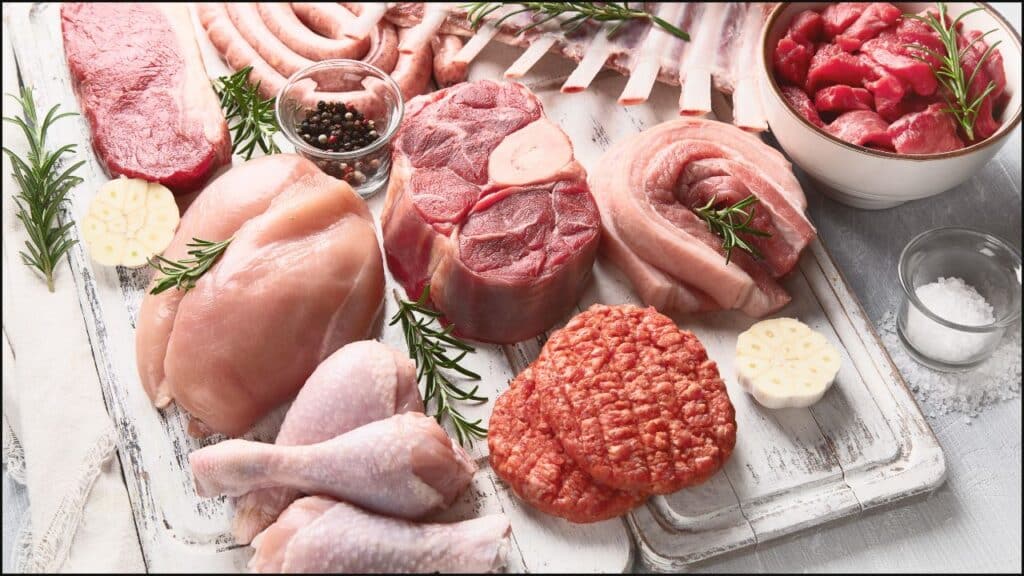
Do Cats Need Pea Protein?
No.
A cat doesn’t need any pea protein in their diet.
Cats are obligate carnivores in the wild, and get all their nutrition from eating small prey such as mice and birds.
Plant protein sources are lower cost food sources which save money for manufacturers. Cheaper dry cat foods tend to use more pea protein.
Not all cats need to avoid plant protein. In small amounts, cats can tolerate plant foods.
Is Pea Protein Bad for Cats?
Debatable.
There is no evidence that pea protein is bad for cats in small amounts. The quality of protein is lower than whole animal food sources like chicken and beef.
A cats diet should contain animal protein as a main ingredient.
AAFCO recommends 30% protein for growth. If protein intake exceeds these values, quality is of less concern.
Most quality wet foods far exceed this amount. Dry cat food, less so.
Remember that sources of protein like wheat gluten (25%) are poor sources of protein. Dry food tends to rely on these source more than wet food.
When choosing cat food consider the following things:
- How much total protein is in the product?
- How much of the total protein is from animal protein sources?
- What quality of protein is in the product (e.g. rendered animal protein, wheat gluten meal are low quality protein sources)?
If the product is low in total protein and high in plant proteins, it’s worth avoiding.
Kittens and senior cats have a higher need for protein for different reasons.
Senior cats have poorer protein digestion. They need more total protein in their diet (and better quality). Kittens need a high protein diet for growth.
Learn More:
What Are the Healthiest Cat Foods?
Complete cat foods.
The healthiest cat foods are wet canned foods that meet AAFCO’s nutrition guidelines as complete foods.
These types of foods have the range of nutrients cats need to thrive.
Learn More:
Conclusion
Pea protein is a plant based protein. It’s added to cat foods as a low cost alternative to animal protein.
Pea protein is less digestible than animal foods. It has phytates, fiber and a harder-to-digest protein structure. Combining with animal protein improves digestion.
Your cat needs at least 30% protein (dry matter basis). Low total protein and protein quality compromises your cats health.
Wet cat food is a better choice to avoid pea protein and other plant proteins.

